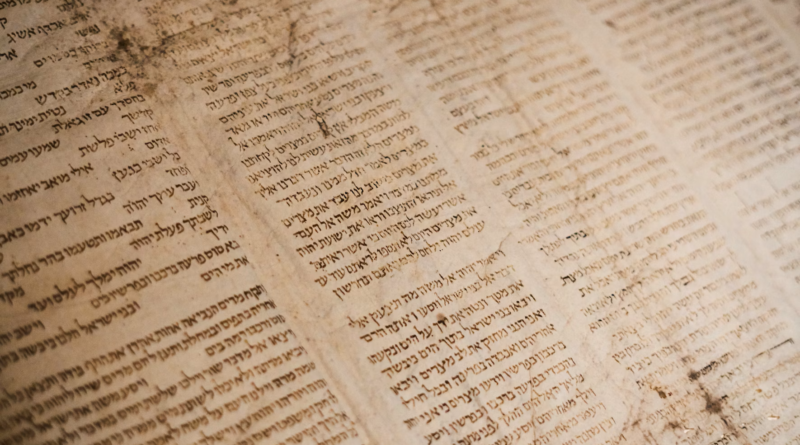Parashat Vajishlach
Jaakob lähetti sananviejiä edellään veljensä Esaun luo Seirin tienoille Edomin pellolle ja käski heidän sanoa Esaulle: »Herrani, näin sanoo palvelijasi Jaakob: ’Olen asunut Labanin luona ja joutunut viipymään siellä näin kauan. Minulle on kertynyt härkiä ja aaseja, lampaita ja vuohia, orjia ja orjattaria, ja lähetän nyt sinulle tämän viestin pyytäen, että ottaisit minut suosiollisesti vastaan.’» (1. Moos. 32:4-6)
Jaakovin viesti Esaville, jolla parashamme alkaa, tuntuu jossain määrin ristiriitaiselta. Toisaalta Jaakov alentaa itsensä kutsumalla veljeään herraksi ja itseään veljensä palvelijaksi. Toisaalta Jaakov paljastaa Esaville koonneensa suuren omaisuuden viimeisen parin vuosikymmenen aikana.
Muutenkin Jakobin alistuminen veljensä edessä tuntuu vähän omituiselta. Onko tämä tosiaan ainoa tapa herättää hänen oman veljensä myötätunto? Ja jos kerran Esavilla on vahva 400:n miehen armeija ja Jaakovilla vain omaisuutta ja perhettä eikö tallainen ’kaikkien korttien paljastaminen’ ole hyvinkin vaarallista. Itse asiassa, jos Jaakovia todella pelotti, niin kuin tekstissä sanotaan, miksi hän ylipäätänsä otti yhteyttä Esaviin. Eihän Edom (nykyään eteläinen Jordania) ollut lähelläkään Jaakovin luonnollista kävelyreittiä Charanista(nykyinen pohjoinen Syyria) kohti Israelin maata.
Ymmärtääksemme parashamme alun meidän on palattava kaksi viikkoa taaksepäin Toldotiin. Esav vihastui Jaakoville, koska Jaakov sai huijauksellaan Esaville tarkoitetut siunaukset. Tarkastelkaamme siunausta:
’ Jumala suokoon sinulle taivaan kastetta
ja maan rehevyyttä,
viljaa ja viiniä runsain määrin.
29Kansat palvelkoot sinua
ja kansakunnat kumartakoot sinua.
Ole veljiesi herra,
ja äitisi pojat kumartakoot sinua.
Kirottuja olkoot ne, jotka sinua kiroavat,
ja siunattuja ne, jotka sinua siunaavat. (1. Moos. 27:28-29)
Siunauksen voi siis tiivistää kahteen pääasiaan: 1. siunattu viljelysmaa 2. herruus muiden kansojen ja erityisesti oman veljensä ylitse.
Jaakov ymmärtää siis, että jos hän haluaa sovinnon Esavin kanssa, hänen pitää osoittaa tälle, että siunaukset eivät ole toteutuneet eikä Esavilla ole mitään syytä kateuteen. Jaakov korostaa olevansa siis Esavin palvelija eikä herra ja polvistuu vielä seitsemän kertaa maahan kohdatessaan veljensä(1. Moos. 33:3) Kertoessaan ajastaan Lavanin luona Jaakov korostaa olleensa vain asukas eikä maanomistaja. Hänen omaisuutensa koostuu eläimistä ja orjista, ei viinistä ja viljasta (ks. Rashi parashan alussa). Jaakovin taktiikka toimiikin hyvin ja Esav halaa ja suutelee Jaakovia. Kun Jaakov vielä lopuksi sanoo Esaville ’ota siunaukseni’ (mp. 33:11), sovinto on täydellinen ja Esav ottaa lahjat vastaan ja ehdottaa yhteistä matkaa.
Antisemitismin taas kerran voimistuessa maailmassa, meidän kaikkien on tutkittaa parashat vajishlachia ja sisäistettävä sen opetukset. Juutalaisviha kumpuaa ennen kaikkea kateudesta siunauksiin joilla J-la on meitä siunannut. Kaikenlainen omaisuudella tai muilla saavutuksilla ylpeileminen herättää helposti taas kerran Esavin kateuden. Olkaamme kiitollisia J-lalle ja vaatimattomia ulospäin.


Parshat Vayislach
This Torah portion deals with the Israeli neighbour state Egypt and its meaning to the Israeli people. Egypt is Greece and means Ptah god’s house and has its origin in Ptolemaiac period 2300-2000 bp ( before present ) . Hebrew word mitsraim means beloved land or land of pyramids or land of fortresses or the people of the land. It has also been used in ancient Egyptian 3500 -2300 bp and is widely used in both ancient and modern semitic languages. In Old kingdom in Egypt, Land’s name was Kemet, which means black land that resembles the colour of the soil of Egypt. During Josefs time Egypt was regional superpower, as the Torah puts it its power originated its large agricultural output that made possible to give food to huge armies. In Egypt there are found large grain stores all over the country. So agriculture created the military economical and cultural power of Egypt. It made possible to build pyramids and other large monumental buildings and structures from ancient to modern ages. Egypt in pyramid ages had sophisticated agriculture but also high tech physics, chemistry and mathematics that make possible to made large buildings , military equipment and many kind of tools needed by country. Egypt had also enemies in north, south, east and west and this explains why Josef speaks about spies.
Parshat has this political background , paro , king, collects large stores so that when famine comes there is enough food for the people. Both in Economy and statesmanship to know future correctly is vital. Jospehs dreams become true as Paros as well. Paro is translated being “ Big house” but also “ The son of the Sun God Ra “. It can well have double meaning. Sun god Ra is mentioned also in the name of many Paros Ramseses that means “ The house of the sun god Ra “
This name is also in the grain store city of Ramses that Israeli slaves built but also in the egyptian province named Ramses.
The story of Jacob and Josef in Parsah agrees well with what we know about ancient history of Egypt. However it is classical survival story that is repeated again and again in Torah , Tanah and in history after Tanah in Hasmonean era to the modern age. We have the stories of Noah, Lot survived in Soddedim , Abrahams journey and survival in first Hebrew war. Then is Rivkas action get her son jewish wife and save the jewery with special talent . Jacobs success in breeding sheep and goats , his success to meet again with skill his militarily superior eleder brother. In Josefs story
Jewish survival needs winning natural disaster famine and because of Josefs talent to forgive and be merciful his father and family and the whole tribe are survived. This survival story has its peak in purim story and again in era of horror in 1930th and 1940 th when 6 million innocent persons were lost but jewish nation had a state of its own and survived again. State of Israel had to wage wars some very great and some smaller winning all and survive again. The Great hope of Jewish people
when anti-Semitism is destroyed worldwide and there will be world peace – messianic era- is every day and every hour nearer us. Some scientists speak that when we read Torah we separate parshah and forget that there is long history before and after certain Torah portion. There is danger of one sided deciphering not to understand events in its context.